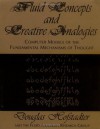251
Followers
4
Following
Manny Rayner's book reviews
I love reviewing books - have been doing it at Goodreads, but considering moving here.
Currently reading
The Greatest Show On Earth: The Evidence For Evolution
R in Action
Fluid Concepts and Creative Analogies
McGee on Food and Cooking: An Encyclopedia of Kitchen Science, History and Culture
Epistemic Dimensions of Personhood
Pattern Recognition and Machine Learning (Information Science and Statistics)
Relativity, Thermodynamics and Cosmology
The Cambridge Handbook of Second Language Acquisition
 In 1938, Yasunari Kawabata, a future Nobel Prize winner, was assigned by the Mainichi newspaper to cover a Go match between Honinbo Shusai, the top player, and his challenger Kitani Minoru. Go has an importance in Japanese culture that is hard for a Westerner to understand, and was one of the four traditional arts that a Samurai had to excel in. The match was very even until Kitani played an unexpected move just before an adjournment; its only purpose was to force a response, giving him extra time to think about his next play. This is completely standard practice in chess, but, although permitted by the rules of Go, was contrary to the complicated etiquette of the game.
In 1938, Yasunari Kawabata, a future Nobel Prize winner, was assigned by the Mainichi newspaper to cover a Go match between Honinbo Shusai, the top player, and his challenger Kitani Minoru. Go has an importance in Japanese culture that is hard for a Westerner to understand, and was one of the four traditional arts that a Samurai had to excel in. The match was very even until Kitani played an unexpected move just before an adjournment; its only purpose was to force a response, giving him extra time to think about his next play. This is completely standard practice in chess, but, although permitted by the rules of Go, was contrary to the complicated etiquette of the game. The rest of this review is in my book What Pooh Might Have Said to Dante and Other Futile Speculations











 2
2
